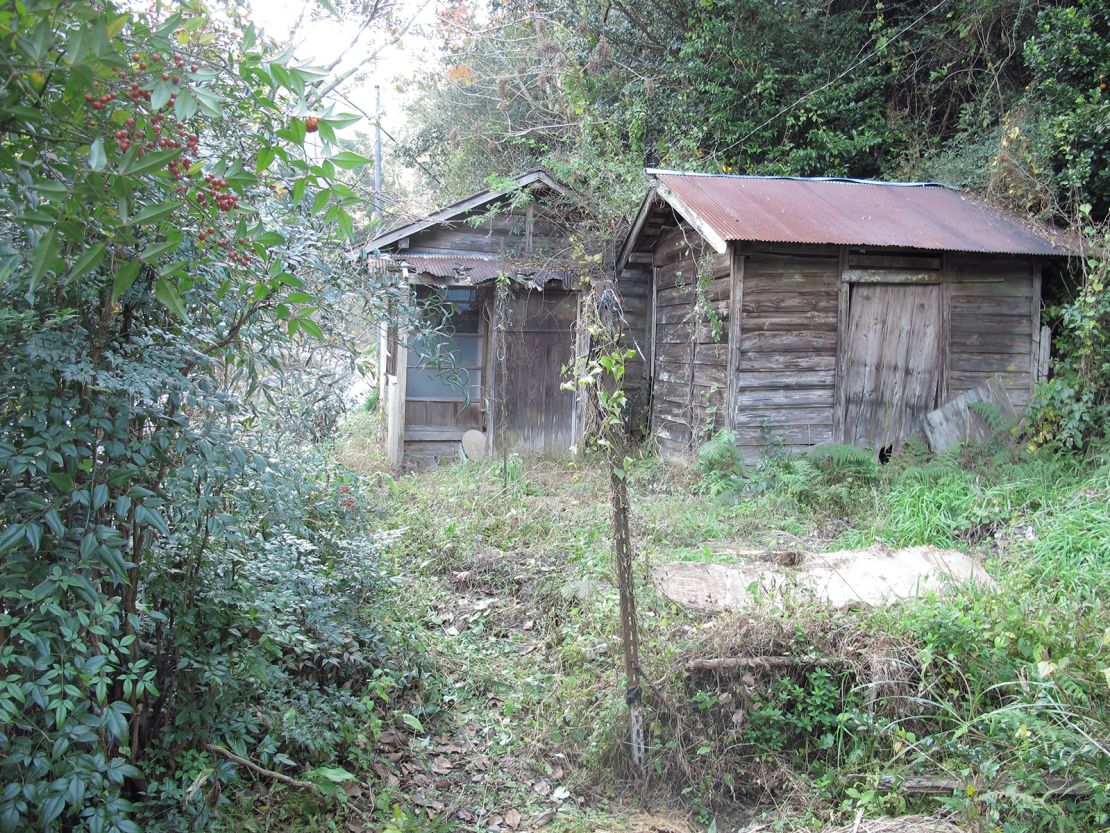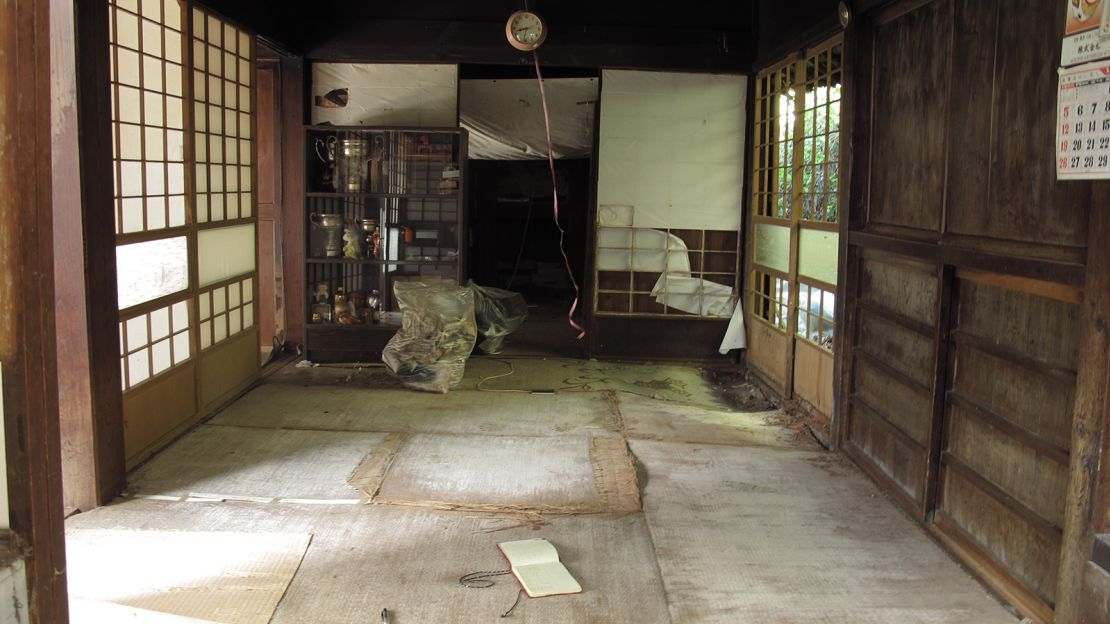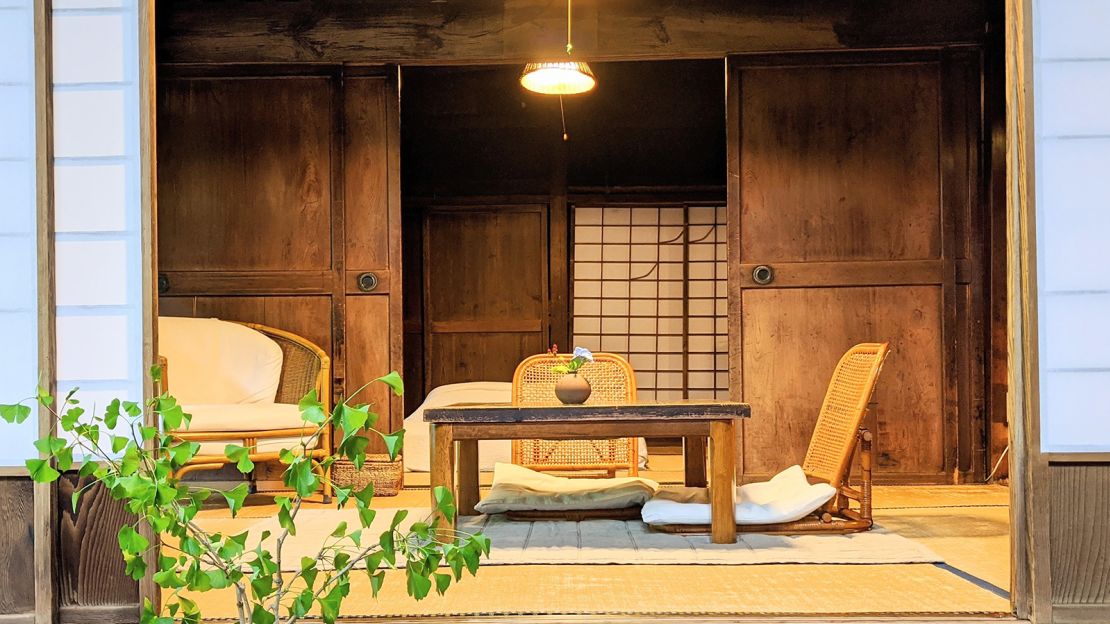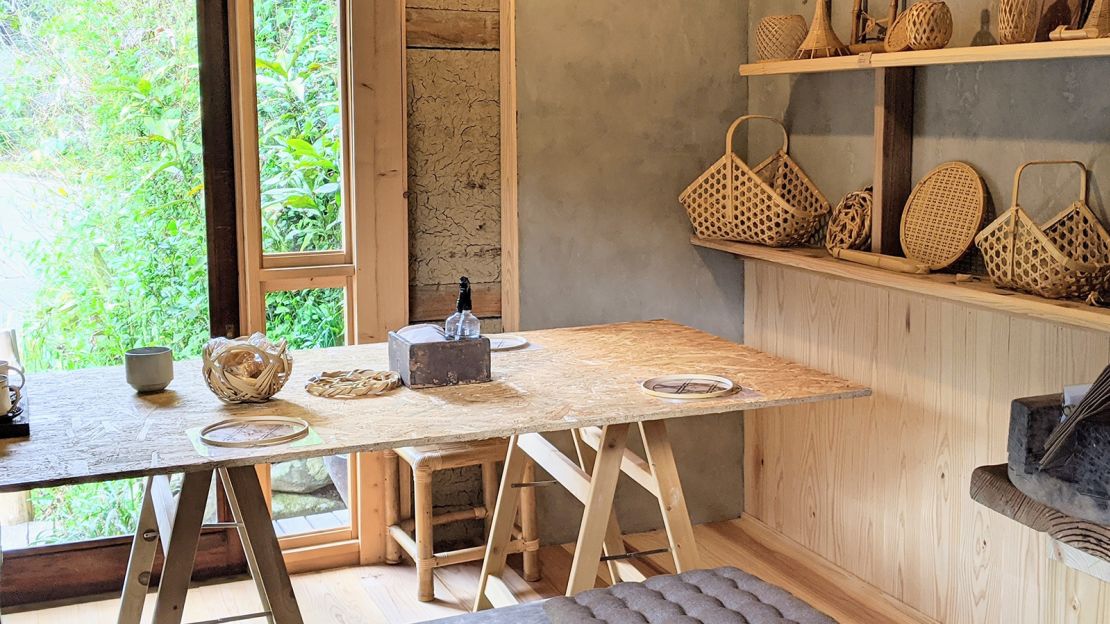Editor’s Be aware: Join Unlocking the World, CNN Journey’s weekly e-newsletter. Get the newest information in aviation, food and drinks, the place to remain and different journey developments.
CNN
—
He’d spent years backpacking world wide, and Japanese traveler Daisuke Kajiyama was lastly able to return dwelling to pursue his long-held dream of opening up a guesthouse.
In 2011, Kajiyama arrived again in Japan along with his Israeli associate Hila, who he met in Nepal, and the pair set about discovering the right location for his or her future enterprise.
Nevertheless, there have been a few main obstacles of their approach. To begin with, Kajiyama had little or no cash to talk of after years of globetrotting round locations like Korea, Taiwan, India, Nepal, Guatemala, Cuba and Canada.
He additionally occurred to have his coronary heart set on a standard Japanese home, sometimes often known as kominka, that are often handed down over generations.
“I needed to have a standard home within the countryside,” Kajiyama tells CNN Journey, explaining that he was decided to seek out two homes positioned subsequent to one another, in order that he and Hila might dwell in a single, whereas the opposite could be a guesthouse that they’d run collectively. “I had a imaginative and prescient.”
When he was unable to seek out something that met his necessities, Kajiyama determined to shift his search to incorporate the rising variety of deserted properties within the nation.
As youthful folks ditch rural areas in pursuit of jobs within the metropolis, Japan’s countryside is turning into stuffed with “ghost” homes, or “akiya.”
In accordance with the Japan Coverage Discussion board, there have been 61 million homes and 52 million households in Japan in 2013, and with the nation’s inhabitants anticipated to say no from 127 million to about 88 million by 2065, this quantity is more likely to improve.
Kajiyama was driving round Tamatori, a small village positioned within the Shizuoka prefecture, between Kyoto and Tokyo, surrounded by inexperienced tea plantations and rice fields, when he got here throughout an aged girl farming, and determined to strategy her.
“I stated ‘Are you aware if there are any empty homes round right here?’ And he or she simply pointed,” he remembers.
He appeared over on the space that she was signaling to and noticed two uncared for homes facet by facet – a former inexperienced tea manufacturing facility and an previous farmer’s dwelling – positioned near a river.
Each properties had been uninhabited for no less than seven years and wanted an enormous quantity of labor. Kajiyama requested the girl to contact the proprietor to seek out out in the event that they’d be concerned with promoting.
“The proprietor stated that nobody might dwell there, because it was deserted,” he says. “However he didn’t say ‘no.’ Everyone was all the time saying ‘no.’ However he didn’t. So I felt there was a small probability.”

Kajiyama returned to go to the homes round 5 occasions, earlier than going to go to the proprietor himself to barter an settlement that may see him use the previous inexperienced tree manufacturing facility as a house, and convert the farmer’s home into the guesthouse he’d all the time envisioned.
Whereas he was eager to buy each of the properties, he explains that the traditions round dwelling possession in Japan imply that he’s unable to take action till it’s handed right down to the son of the present proprietor.
“They stated ‘in the event you take all of the accountability your self, you may take it.’ So we made an settlement on paper,” he says.
Each he and Hila have been conscious that that they had lots of work forward of them, however the couple, who married in 2013, have been thrilled to be one step nearer to having their very own guesthouse in a great spot.
“It’s a really good location,” says Kajiyama. “It’s near town, however it’s actually countryside. Additionally folks nonetheless dwell right here and go to work [in the city].
“The home can also be in entrance of the river, so once you fall asleep you may hear the sound of the water.”
In accordance with Kajiyama, the method of clearing the home, which is round 90 years previous, earlier than starting the renovation works was one of many hardest components of the method, just because there was a lot stuff to kind by means of. Nevertheless, he was in a position to repurpose a number of the objects.
Throughout the first 12 months, he spent lots of time connecting with locals, gaining data concerning the dwelling, and serving to the native farmers with farming for the primary 12 months or so.

Though he wasn’t massively skilled with renovation work, he had spent a while farming and finishing constructing whereas he was backpacking, and had additionally taken odd jobs fixing peoples properties.
He accomplished a lot of the work on the guesthouse himself, changing the flooring and including in a rest room, which he says was a marriage current from his dad and mom, at a price of round $10,000.
“I’m probably not an expert,” he says.” I love to do carpentry and I take pleasure in creating issues, however I’ve no expertise in my background.
“From my a number of years of backpacking, I noticed so many attention-grabbing buildings, so many homes of attention-grabbing shapes and I’ve been gathering these in my mind.”
Kajiyama was decided to maintain the home as genuine as potential through the use of conventional supplies.
He saved cash by gathering conventional wooden from constructing corporations who have been within the strategy of breaking down conventional homes.
“They should spend the cash to throw it away,” he explains. “However for me, a number of the stuff is like treasure. So I’d go and take the fabric that I needed.
“The home is a really, very previous fashion,” he says. “So it wouldn’t look good if I introduced in additional trendy supplies. It’s completely genuine.”
He explains that little or no work had beforehand been completed to the home, which is kind of uncommon for a house constructed so a few years in the past.
“It’s completely genuine,” he says. “Normally, with conventional homes, some renovations are made to the partitions, as a result of the insulation will not be so robust. So that you lose the fashion.”

He says he obtained some monetary help from the federal government, which meant he was ready to usher in a carpenter and in addition benefited from Japan’s working vacation program, which permits vacationers to work in alternate for meals and board, when he wanted further assist.
After performing some analysis into Japanese guesthouse permits, he found that one of many easiest methods to amass one could be to register the property as an agriculture guesthouse.
As the realm is stuffed with bamboo forests, this appeared like a no brainer, and Kajiyama determined to be taught every thing he might about bamboo farming in order that he might mix the 2 companies.
“That is how I began farming,” he says.
In 2014, two years after they started engaged on the home, the couple have been lastly in a position to welcome their first visitors.
“It was a good looking feeling,” says Kajiyama. “In fact, this was my dream. However folks actually respect that it was deserted and I introduced it again to life.”
He says that internet hosting visitors from all around the world has helped him to remain related to his former life as a backpacker.
“I keep in a single place, however folks come to me and I really feel like I’m touring,” he says. “At present, it’s Australia, tomorrow it’s the UK and subsequent week South Africa and India.
“Folks come from completely different locations and so they invite me to affix them for dinner, so generally I be part of somebody’s household life.”
Sadly, Hila handed away from most cancers in 2022. Kajiyama stresses that his beloved spouse performed an enormous half in serving to him obtain his dream of getting a guesthouse and says he couldn’t have completed it with out her.
“We have been actually collectively,” he provides. “She created this place with me. With out her it will not have been like this.”
Whereas the three-bedroom guesthouse, which measures round 80 sq. meters, has been open for round eight years, Kajiyama remains to be engaged on it, and says he has no thought when he’ll be completed.
“It’s by no means ending,” he admits. “I’m midway, I really feel. It’s stunning already. Nevertheless it began off deserted, so it wants extra particulars. And I’m getting higher at creating, so I want time to do it.”

He explains that he’s unable to finish work on the house whereas visitors are there. And whereas the property is closed throughout the winter, he spends two months as a bamboo farmer and often spends a month touring, which doesn’t depart him a lot time for renovations.
“Generally I don’t do something,” he admits.
Yui Valley, which presents actions comparable to bamboo weaving workshops, has helped to carry many vacationers to the village of Tamatori through the years.
“Many of the visitors come after Tokyo, and it’s such a distinction,” he says. “They’re actually glad to share the character and the custom in our home.
“Most individuals have dreamed of coming to Japan for a very long time and so they have a really brief time right here.
“In order that they have such a good looking power. I’m glad to host on this approach and be part of their vacation time. It’s very particular [for me].”
Kajiyama estimates that he’s spent round $40,000 on the renovation work thus far, and if the suggestions from visitors, and locals, is something to go by, it appears to have been cash properly spent.
“Folks respect what I’ve completed,” he provides. “In order that makes me really feel particular.”
As for Hiroko, the girl who identified the home to him over a decade in the past, Kajiyama says she’s surprised on the transformation, and is amazed at what number of worldwide vacationers are coming to Tamatori to remain at Yui Valley.
“She can not consider how way more stunning it’s 1750503639,” he says. “She didn’t assume it was going to be like this. So she actually appreciates it. She says ‘thanks’ lots.”
Yui Valley, 1170 Okabecho Tamatori, Fujieda, Shizuoka 421-1101, Japan

